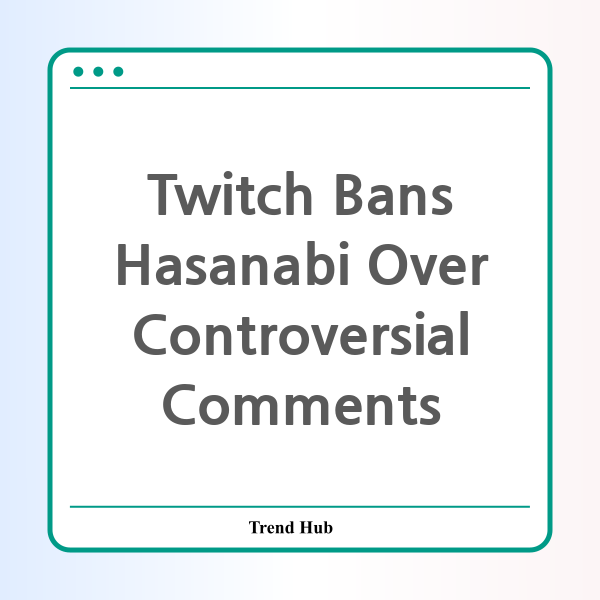* This website participates in the Amazon Affiliate Program and earns from qualifying purchases.

In a shocking turn of events, Hasan Piker, better known as Hasanabi, a prominent Turkish streamer and political commentator, has been banned from Twitch after making inflammatory comments directed at Florida Senator Rick Scott. The incident, which escalated quickly, highlights the fine line between political commentary and incitement that many public figures must navigate in today’s digital landscape.
During a recent livestream, Piker urged his viewers to "kill Rick Scott," a remark that ignited outrage across social media platforms. This comment was made in the context of discussing a clip featuring House Speaker Mike Johnson and alleged Medicare fraud committed by Scott. "+If you cared about Medicare fraud or Medicaid fraud, you would kill Rick Scott," he stated, referring to Scott’s controversial past involving Columbia/HCA, a healthcare company that was fined heavily in the 1990s for defrauding Medicare and Medicaid.
The Twitch community was quick to react, with many reporting Piker's account for violating the platform's community guidelines. His Twitch page now displays a message indicating that the account is "temporarily unavailable due to a violation of Twitch's Community Guidelines or Terms of Service." This incident raises serious questions about the responsibility of creators when discussing sensitive political topics and the potential ramifications of their words.
Piker addressed the situation on X (formerly Twitter), apologizing for his choice of words and stating that he would be more careful in the future. He emphasized that he meant to criticize Scott’s actions rather than call for violence. His tweet included a commitment to calling for “MAX PUNISHMENT” for Scott in the future, showcasing the ongoing tensions between political rhetoric and accountability.
This isn’t the first time Piker has faced backlash for his outspoken views. Known for his progressive stances on various issues, including healthcare and immigrant rights, he has often found himself in the crosshairs of controversy. His statements have drawn accusations of antisemitism and criticism for his defense of specific political positions, particularly regarding the Israeli-Palestinian conflict.
As a streamer with millions of followers, Piker's influence is undeniable, and incidents like this shed light on the challenges that come with having a significant platform. Piker has amassed a sizable audience, with 2.8 million subscribers on Twitch and an additional 1.5 million on YouTube. His support for causes such as the Oscar-winning documentary "No Other Land"—which raises funds for humanitarian efforts in Gaza—further establishes his position as a polarizing figure in contemporary political discourse.
The Twitch ban raises important discussions about the nature of free speech in online platforms. How far can public figures go when discussing political figures? Where should we draw the line between passionate discourse and harmful rhetoric? These are questions that users, platform administrators, and creators alike must grapple with as the digital world continues to evolve.
As Piker awaits the outcome of his ban, the incident serves as a cautionary tale for other creators about the potential fallout from their statements. While passionate discussions about politics are vital for democracy, it’s essential to approach these topics with a sense of responsibility to avoid misleading or violent implications.
* This website participates in the Amazon Affiliate Program and earns from qualifying purchases.